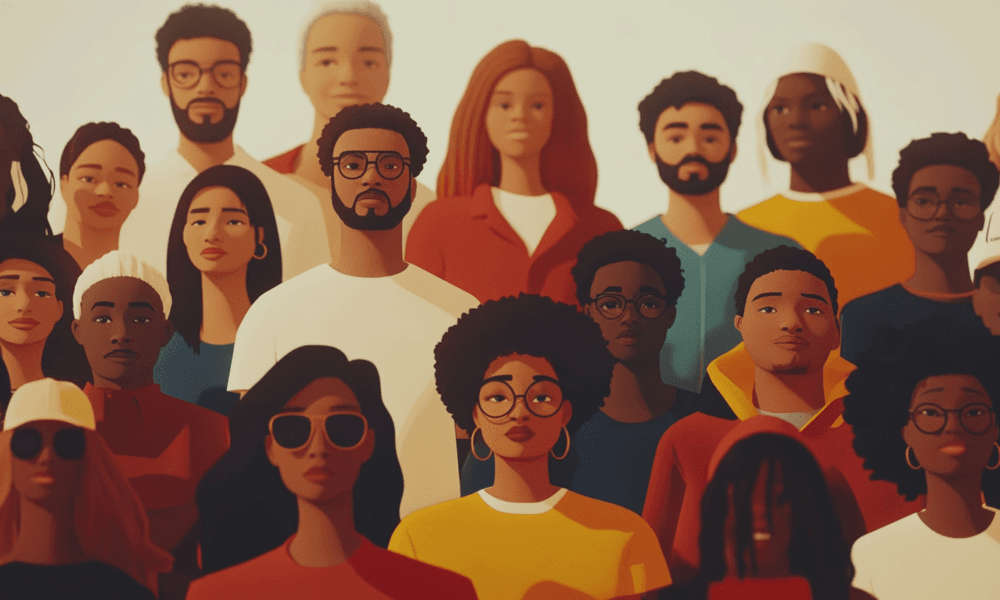The Power of Community: Building Connections in a Disconnected World
In our increasingly digital and individualistic society, many people find themselves feeling more isolated than ever before. The rise of social media, remote work, and a fast-paced lifestyle has contributed to a sense of disconnection that can negatively impact mental and physical health. Yet, the importance of building and maintaining meaningful connections remains vital. Community plays an essential role in our lives, offering a sense of belonging, support, and shared purpose. In this article, we will explore the power of community, why it is so important in our disconnected world, and how we can foster social connections that enhance our well-being.
The Importance of Social Connections
Humans are inherently social beings. Throughout history, communities have played a crucial role in our survival and well-being. From hunter-gatherer societies to modern urban environments, humans have thrived by living and working together. Social connections provide emotional support, foster collaboration, and contribute to our overall sense of happiness.
Research has shown that strong social connections are linked to numerous health benefits, including reduced stress, improved immune function, and increased life expectancy. In contrast, social isolation has been linked to higher risks of depression, anxiety, and chronic diseases. The negative impact of loneliness is so significant that some researchers have equated its effects on health to those of smoking 15 cigarettes a day.
The Rise of Disconnection in Modern Society
Despite the advantages of technology and modern communication tools, people are feeling more disconnected than ever before. Factors contributing to this sense of disconnection include:
1. Social Media and Virtual Interactions
While social media has made it easier to stay in touch with friends and family, it has also created a paradoxical effect—more online connections but fewer meaningful relationships. Many people find themselves scrolling through their feeds, feeling a sense of FOMO (fear of missing out) or comparing their lives to the curated highlights of others, which can lead to feelings of loneliness and inadequacy.
2. Remote Work
The shift to remote work during the COVID-19 pandemic has provided flexibility and convenience for many, but it has also reduced opportunities for social interactions. The absence of in-person meetings, casual office chats, and shared lunches can lead to a sense of isolation, particularly for those who live alone.
3. Busy Lifestyles
Our fast-paced lifestyles often leave little time for genuine social interactions. Between work, family responsibilities, and other commitments, many people struggle to find time to connect with friends or engage in community activities. This lack of time can create a barrier to building and maintaining relationships.
The Benefits of Building Strong Communities
The power of community goes beyond just social interactions. Communities provide a sense of belonging, purpose, and mutual support that contributes to our well-being in numerous ways:
1. Emotional Support and Mental Health
Being part of a supportive community can provide emotional support during difficult times. Whether it’s coping with the loss of a loved one, dealing with job stress, or navigating a personal crisis, having a group of people to lean on can make a significant difference in how we manage our emotions. Studies have shown that people who have strong social support systems are less likely to experience depression and anxiety.
2. Shared Purpose and Meaning
Communities often form around shared interests, goals, or values. Whether it’s a neighborhood association, a religious group, or a hobby club, being part of a community gives people a sense of purpose and meaning. Working together towards a common goal fosters a sense of accomplishment and fulfillment.
3. Improved Physical Health
Social connections can also have a positive impact on physical health. Engaging in community activities can encourage healthier behaviors, such as regular exercise, healthy eating, and avoiding harmful habits like smoking or excessive drinking. Research has shown that people who are socially connected are more likely to engage in activities that promote good health and have better overall physical health outcomes.
How to Foster Community and Build Meaningful Connections
Building and nurturing a sense of community requires effort and intentionality. Here are some strategies to help foster meaningful connections and create a supportive community in your life:
1. Join Local Clubs or Groups
One of the easiest ways to meet like-minded individuals is to join a local club or group that aligns with your interests. Whether it’s a book club, sports team, or volunteer organization, participating in group activities can help you meet new people and form meaningful bonds.
- Hobbies and Interests: Look for groups that focus on hobbies you enjoy, such as cooking, hiking, or crafting. Shared interests are a great way to break the ice and build friendships.
- Community Centers: Many communities have local centers that host events, workshops, and classes. Participating in these activities can be a great way to meet people in your area.
2. Volunteer Your Time
Volunteering is a powerful way to build community while giving back to others. Volunteering not only helps you connect with people who share your values, but it also provides a sense of purpose and fulfillment. Whether it’s working at a local food bank, helping to clean up a park, or mentoring young people, volunteering is a meaningful way to make a difference in your community.
3. Host Community Events
Hosting or organizing community events can help bring people together and create opportunities for social interaction. Consider organizing a neighborhood potluck, block party, or game night. These types of events provide a relaxed atmosphere where people can connect, socialize, and form lasting relationships.
4. Make an Effort to Reconnect
In our busy lives, it’s easy to lose touch with old friends or acquaintances. Making an effort to reconnect with people you’ve lost contact with can help rekindle meaningful relationships. A simple message or phone call can go a long way in re-establishing connections.
5. Practice Active Listening
Active listening is a key component of building strong relationships. When engaging in conversations, focus on truly listening to what the other person is saying rather than thinking about what you’ll say next. Showing empathy and understanding can help deepen your connections and make others feel valued.
The Role of Technology in Building Community
While technology has contributed to feelings of disconnection for some, it also has the potential to be a powerful tool for building community. Here are some ways that technology can help foster connections:
1. Online Communities
Online communities can provide a sense of belonging for people who may not have access to in-person social groups. Platforms like Reddit, Facebook Groups, and Discord allow people to connect with others who share their interests, no matter where they are in the world. These online communities can provide support, advice, and friendship, particularly for those who may feel isolated in their offline lives.
2. Virtual Events and Meetups
Virtual events and meetups have become more popular in recent years, particularly during the COVID-19 pandemic. Virtual book clubs, fitness classes, and even happy hours allow people to connect and engage in activities together, even if they’re physically apart. These events can be a valuable way to maintain social connections when in-person gatherings are not possible.
3. Social Media with Intention
While social media can contribute to feelings of disconnection, using it with intention can help foster meaningful relationships. Instead of mindlessly scrolling, try to use social media to engage with others. Comment on friends’ posts, send messages, and share content that is meaningful to you. Being intentional about your interactions can help you use social media in a way that builds, rather than diminishes, connections.
Conclusion
In a world that often feels disconnected, the power of community cannot be underestimated. Social connections provide us with emotional support, a sense of belonging, and a shared purpose that contributes to our overall well-being. While modern technology and busy lifestyles have made it more challenging to build meaningful relationships, there are many ways to foster community and create lasting connections.
By being intentional about our interactions, participating in group activities, and giving back to others, we can create a sense of community that enriches our lives. Whether it’s joining a local club, volunteering, hosting events, or participating in online communities, building connections is key to leading a happy, healthy, and fulfilling life.




No Comment! Be the first one.